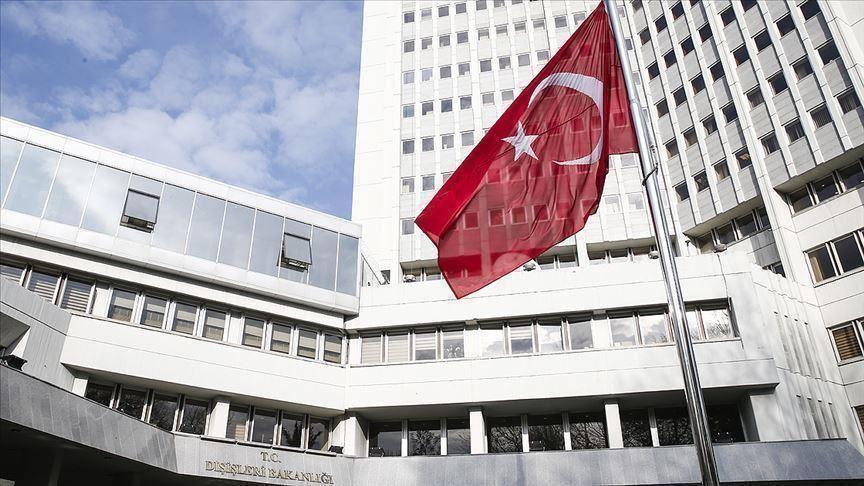
Turkey on Sept. 22 criticized a decision by the European Union to impose sanctions on a Turkish maritime company.
"It has no value in our sight to add our maritime company to the sanctions list in the context of Libya as a result of the EU Foreign Affairs Council's meeting," the country's Foreign Ministry said in a statement.
It is "extremely unfortunate that such a wrong decision" has been taken when efforts are being made to reduce tensions in the Eastern Mediterranean, it added.
The EU's Operation Irini supports Libyan warlord Khalifa Haftar and punishes the U.N.-recognized Government of National Accord (GNA), it said.
The military operation, approved by EU foreign ministers on March 31 this year, aims to operate in the air, sea and with satellites to ensure that all countries respect a ban on providing arms to the parties involved in the Libyan conflict.
“While the aid provided by our country to the legitimate government is described as a violation of the embargo, the ignoring of the countries and companies that send arms to the putschist Haftar by land and air, especially the UAE, is a clear indicator of the EU's biased attitude,” the ministry said.
It said if the EU wants security and stability in the region, it should abandon this biased attitude and act in consultation and cooperation with Turkey.
The EU on Sept. 21 froze the assets of Avrasya Shipping, whose cargo vessel Çirkin was involved in a naval incident between NATO members France and Turkey in June.
The EU has accused the company of using the ship to smuggle weapons to Libya. Ankara denies the arms-trafficking claim and says the ship was carrying humanitarian aid.
Although the operation aims to enforce the U.N. arms embargo on Libya’s warring sides, it mainly focuses on maritime activities in the Mediterranean, while Haftar's side – the enemy of the legitimate Libyan administration – continues to receive arms and ammunition mainly by air and land, according to Libyan Prime Minister Fayez al-Sarraj.
Libya has been torn by civil war since the ouster of late ruler Muammar Gaddafi in 2011.
Libya's new government was founded in 2015 under a U.N.-led agreement, but efforts for a long-term political settlement failed due to a military offensive by Haftar’s forces.
The U.N. recognizes the Libyan government headed by al-Sarraj as the country's legitimate authority.
Libya's legitimate government has been under attack by Haftar’s forces since last April, and more than 1,000 people have been killed in the violence.
Haftar has the support of the United Arab Emirates, Egypt and Russia while the U.N.-recognized government is backed by Turkey.